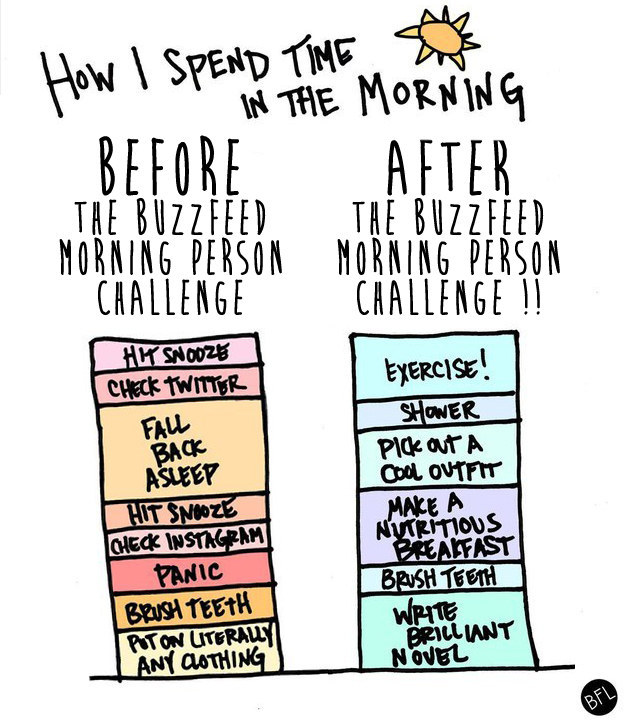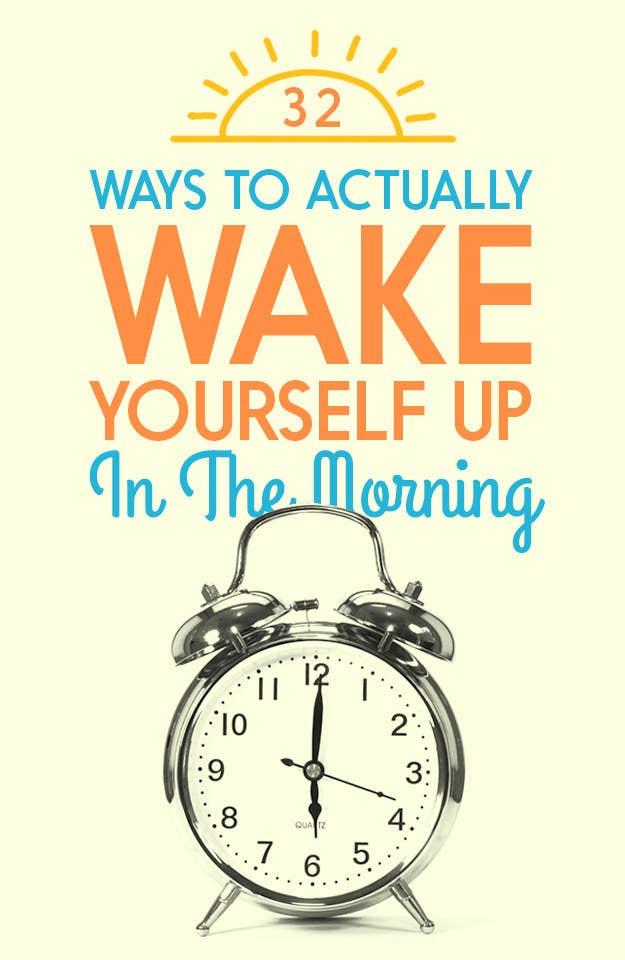
1. Remember this: The key to getting up earlier is actually more about how well and long you sleep.
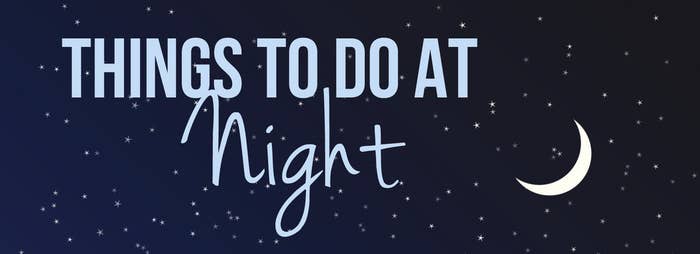
2. Stop drinking caffeine late in the day.
To get the best sleep, stop eating or drinking things with caffeine at least eight hours before you want to go to bed. That means soda, coffee, energy drinks, tea, and even chocolate.
3. Give up that nightcap.
According to the National Sleep Foundation, drinking alcohol can have adverse effects on the quality of your sleep if ingested close to the time you go to bed.
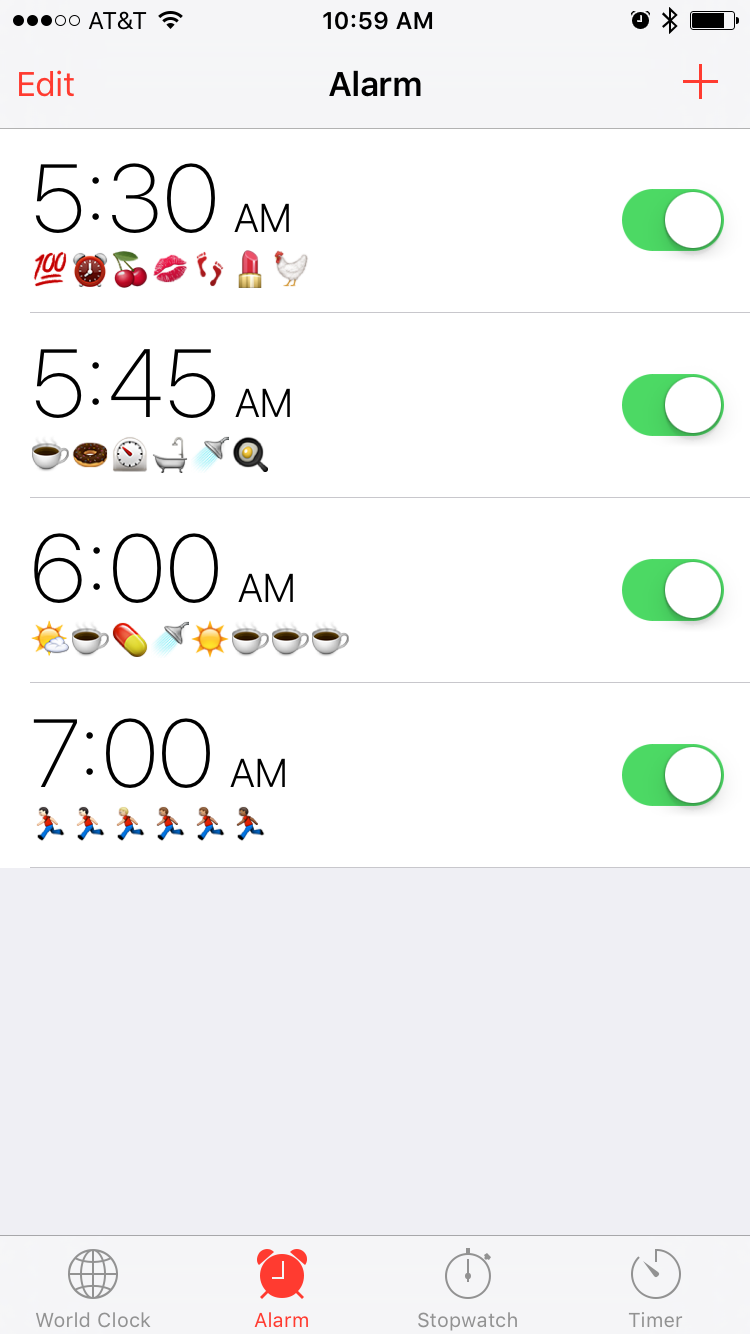
4. Start an evening routine.
Anything from a nightly cup of (decaf) tea to an evening bath or shower can get your mind and body relaxed and signal that it's time to start slowing down.
5. Stop using your bed to watch Netflix.
OK, sure, this sounds hard. But when you use your bed for things OTHER than sleep (or sex), your brain stops associating the space with relaxation. So move your binge-watching to the couch and get better shut-eye.
6. Lay out your clothes for the next morning.
Prepping your wardrobe for the next day is one great way to shave off a couple of minutes from your morning routine and make it easier to get up and out of the house.

7. Make your bed easier to make.
Making your bed is a great way to start the day (and some say this small habit can change your life), but having too many sheet and blankets and pillows makes this simple task too complicated. Pare down your sleep sanctuary to have only the layers you need to be warm and make it easier on yourself in the a.m.
8. Prepare your breakfast before you go to sleep.
Whether it's an actual overnight recipe or just prepping ingredients for your morning meal, having breakfast almost or all the way ready will be a welcome treat for your tired self.

9. Turn off your screens one to two hours before bed.
Melatonin, the natural hormone produced by the pituitary gland that helps you sleep, is known as the "Dracula of hormones": It only comes out in the dark. So when you dim the lights and stop looking at backlit screens, your eyes and brain send a signal to your pineal gland to start producing melatonin.
If you can't stand to live without your devices lulling you to sleep, use a program like F.lux that reduces the blue light waves from your devices.
10. Make sure your sleeping space is the right temperature.
The ideal sleep temp is 68 to 72 degrees Fahrenheit.
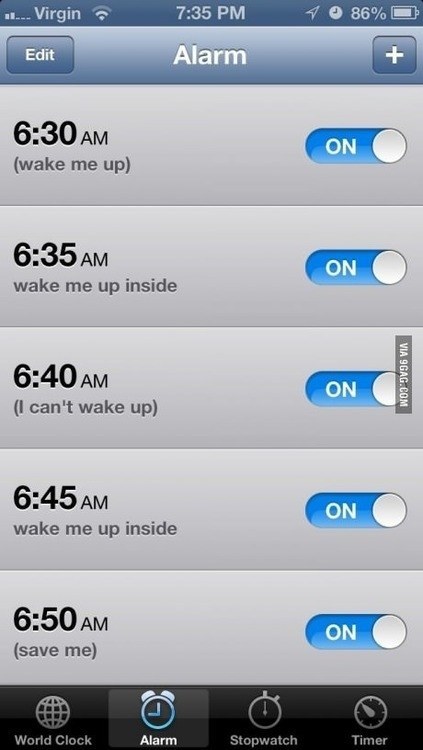
11. Shower or bath BEFORE bed.
Even if it's just a short warm bath, your muscles will relax.
12. Keep a notepad by your bed.
Before sleep, make a list of everything you need to remember the next day, ideas you have, and anything else you want to stop from nagging your brain as you power down.
13. Turn your alarm clock away from you.
If you can't sleep or you wake up in the middle of the night and see a glowing time taunting you, it can make you anxious and less likely to get to sleep.
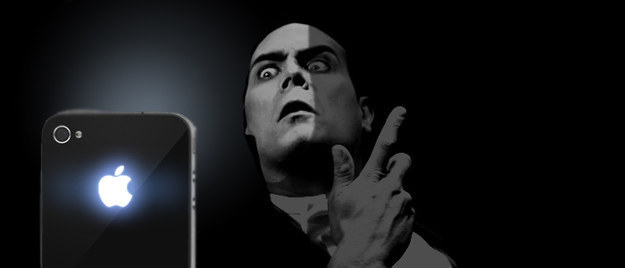
14. Try some evening yoga or meditation.
Anything that calms down the body and mind can induce restful sleep.
15. Play some white noise.
Even if your house is quiet, there are noises that can wake you up or keep you from getting the best sleep. White noise can actually help you get better sleep.
16. Get the right amount of sleep.
Most people function best on seven to nine hours of sleep. If you have to get up early and want to feel your best, you might need to go to bed earlier.
17. If you can't fall asleep, don't stay in bed.
Anxiety about sleep doesn't lead to good sleep. Instead, get up and read (in low light) or do another relaxing activity until you're actually tired.

18. Turn the lights on as soon as you're up.
This signals to your brain that it's time to WAKE UP. If you get up before dark but want a more natural light, get one of these clocks that slowly brighten as it approaches alarm time.
19. Actually make your bed.
It's one way to feel accomplished first thing in the a.m. and it sets the tone for your entire day. Plus, it's much harder to fall back into a fully made bed.
20. Do NOT snooze.
Whatever you do, don't go back to sleep once you're awake. It can restart your sleep cycle and make you feel groggy for hours.
Can't seem to stop? Try this app that charges you $1 every time you hit snooze.
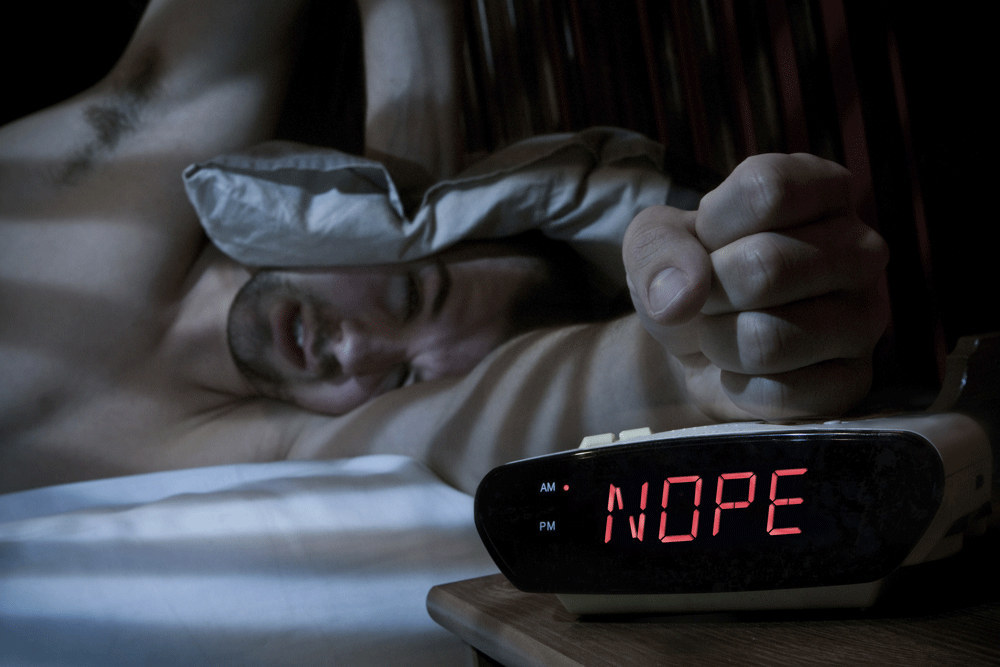
21. Instead, try the “inverted snooze...”
When your alarm goes off you should hit snooze, but you get those nine minutes to do whatever you want before you actually get ready. Treat yourself to nine minutes of uninterrupted You time.
22. Use a cool song as your alarm tone.
But don't use your favorite song, unless you want to start hating it pretty quickly.
23. Switch your alarm every couple of months.
That way you won't get so used to the sound you sleep through it.
24. Drink water before you drink coffee.
Sometimes what seems like tiredness is actually dehydration. Have a full glass of water in the morning to get yourself on the right track.
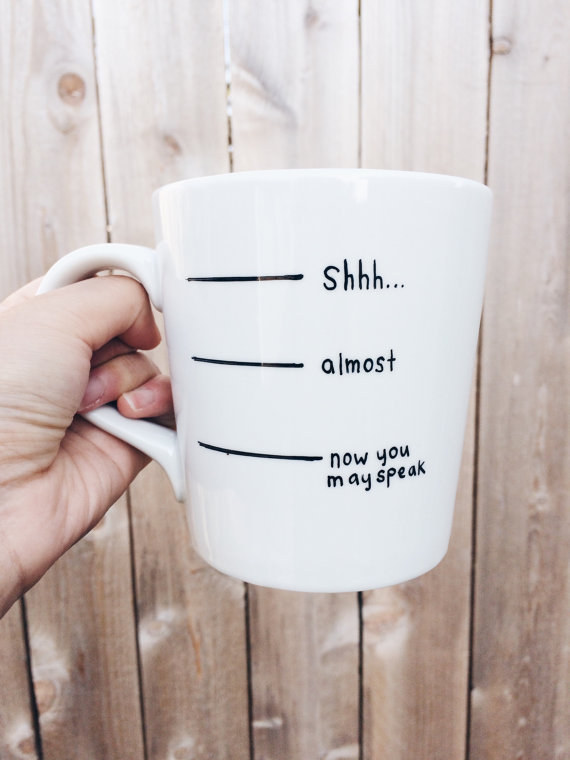
25. Reward yourself for getting up.
Whether it's a nice leisurely breakfast at home or a fancy coffee, treat yourself and make it worthwhile to get up at the crack of dawn.
26. Make yourself an elaborate brunch.
Who says brunch is just for weekends? Make your Mondays even better with a full-scale meal with all the fixins'.
27. But make sure your breakfast has more protein than carbs.
Carbs will make your body slow down; protein will get you going.
28. Make morning appointments.
Whether it's an actual appointment or a date to meet a friend, make sure there's someone there to keep you accountable for getting up and going.
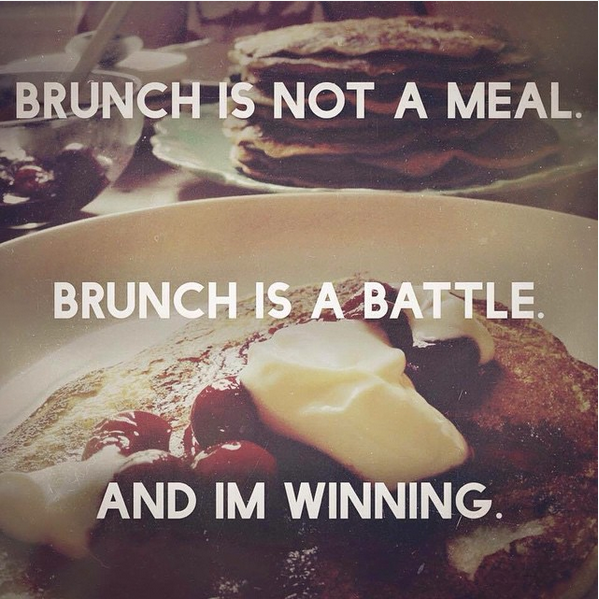
29. Schedule something to look forward to in the first half your day.
Putting something enjoyable on your actual schedule is an easy way to eliminate that Long Day Ahead Dread.
30. Exercise in the a.m.
If you don't have time for a full workout, at least get your body moving pretty soon after you're awake.
31. Don’t sleep in on weekends.
Sleeping in when you have a normal weekday schedule is like giving yourself jet-lag. Your body works better on a consistent schedule. It doesn't pay back your sleep debt — it actually does the opposite and can make you more tired.
Instead, use the early morning hours of the weekend to do cool things you don't usually have time for.
32. Want to truly optimize your a.m.? Take the BuzzFeed Morning Person Challenge!
